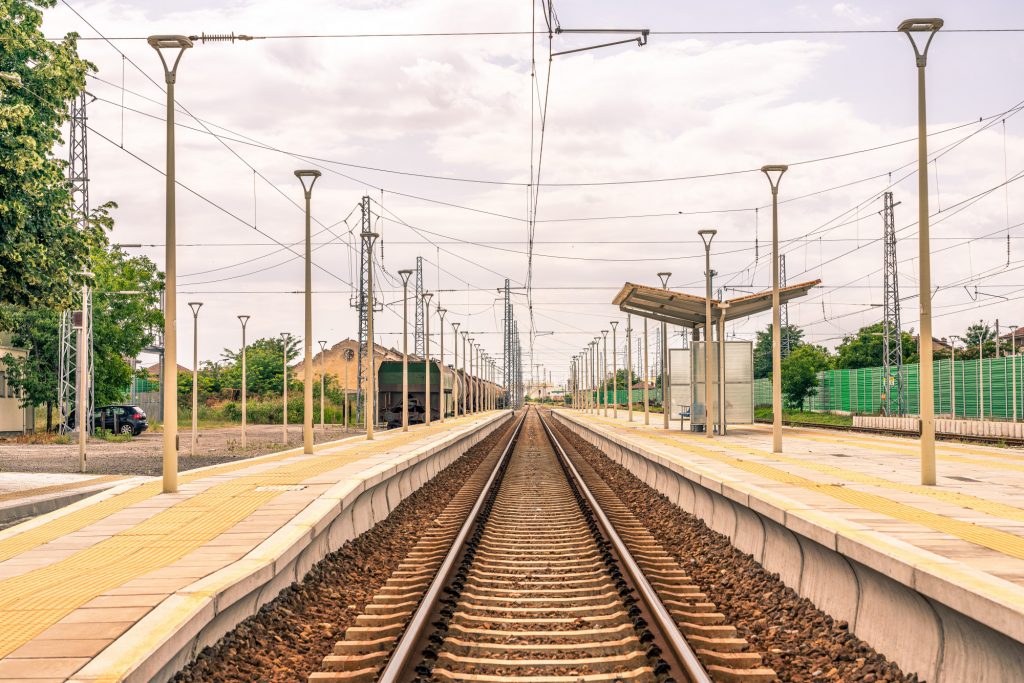Rolling stock with EU funds. Bulgaria risks losing EUR 1.2 billion from its Recovery Plan after cancelling tenders for the renewal of trains at Bulgarian State Railways BDZ. Romania faces similar risks, with two rolling stock procurement procedures almost cancelled.

Georgi Gvozdeykov, a minister in Nikolai Denkov’s cabinet who remained in the caretaker government because he wanted to complete the modernisation of BDZ, last week suspended a huge tender worth an estimated EUR 600m. For this EU funding, Bulgaria was supposed to get 35 single-deck trains.
A day later, a similar EUR 600 million tender to supply 20 new high-speed trains was cancelled. The renewal of Bulgarian Railways is the largest project funded by the Recovery Plan, with a total value for Bulgaria of EUR 6 billion, and is vital for the state-owned railway company.
Rolling stock with EU funds, cheap but long-lasting
In the first tender, the favourites to supply 35 single-deck trains were Czech company SKODA and Polish company PESA, which submitted bids for much less than the EU funding. Bulgaria cancelled the procedure because the two companies offered a longer delivery time for the trains. In the second tender to supply 20 high-speed trains, the government wanted to attract the biggest manufacturers, but overly restrictive delivery times scared off many potential participants. Only two companies – Talgo of Spain and CRRC Qingdao Sifang Co. Ltd. The Spanish company’s bid was EUR 600 million and the Chinese company’s EUR 303 million.
European Commission accuses CRRC of dumping
The double price difference and suspicions of unregulated state aid to the Chinese company prompted the European Commission to launch an investigation in February. It forced the Chinese company to withdraw its offer because the investigation allegedly led to a breach of the company’s proposed schedule to deliver trains within 33 months.
Negotiations continued with the Spanish company, but it turned out that its offer to deliver the 20 new trains would take longer than the 33 months set by Bulgaria. In the absence of a commitment for this period, the tender was cancelled.
The Bulgarian government claims that the order for 20 new high-speed trains will not be reopened because manufacturers cannot produce them in such a short time. The European Commission has allowed Bulgaria to make changes to the tender to deliver trains that can be produced and delivered by mid-2026.
Romania, also in deadlock
Further north, Romania faces similar problems to Bulgaria, risking leaving EU money untouched. French manufacturer Alstom is struggling to meet delivery schedules, citing a crisis in the delivery of various necessary components. According to the updated train delivery schedule, handed over by Alstom Ferroviaria S.p.A., the 37 RE-IR1s will enter service gradually between November 2024 and December 2025.
Alstom and the Romanian Railway Reform Authority (ARF) signed a contract in March 2022, two years ago, for the delivery of 20 Coradia Stream interregional trains and associated maintenance services for a period of 15 years. The total estimated value of the contract is around EUR 270 million. So far, only one train has arrived, and it has reportedly been in testing for several months.
Transport and Infrastructure Minister Sorin Grindeanu said earlier this month that penalties imposed on Alstom for delays in the delivery of 37 trains for ARF have amounted to 80 million lei (EUR 16 million).
Alstom, on the other hand, won a case before the Bucharest Court of Appeal against the designation of the Polish competitor PESA as the winner of two tenders for the purchase of regional trains (62 trains, contract worth 3.2 billion lei) and interregional trains (20 units).
According to the deal agreed with the EC – the European Commission Representation in Romania was obliged to sign the contracts by the end of last year and to deliver the purchased rolling stock by mid-2026. However, it is unlikely that either Alstom or PESA will be able to deliver more than 100 complete trains in just two years, while the deadline remains.
Share on:



